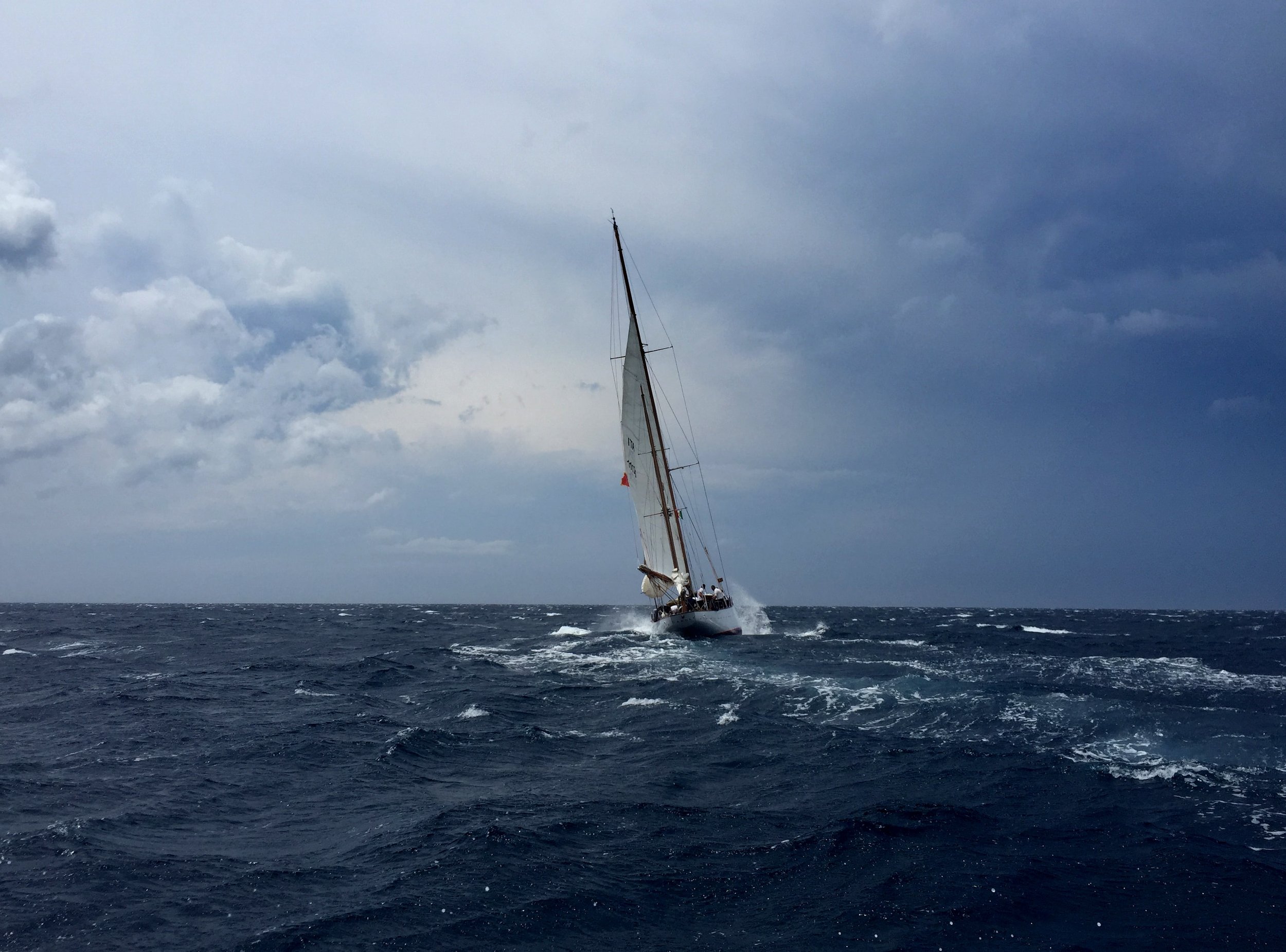LIGHTNING AT SEA: SHOULD YOU BE WORRIED?
Lightning, and the intimidating grumbles of thunder that accompany it has the ability to quicken the heartbeat of even the biggest, toughest sailor. It’s a fear that is quite understandable, as a metal tinny on a lake or a yacht with a tall metal mast is a clear target for bolts of lightning. Seeing a lightning strike colour the water surrounding your boat and feeling your hair stand up is an eerie experience.
WHAT HAPPENS IF YOUR BOAT GETS HIT BY LIGHTING AT SEA?
Fears aside, what is less clear is just how worried about lightning at sea you should be. Between myths, bar talk and the dramatic nature of lightning, it’s hard to know just how dangerous or likely lightning really is. I’ve heard (far-fetched) stories of strikes smashing through hulls. But I’ve also heard far more reliable stories of lightning that sends static through boats and illuminates nearby waves, without affecting boat or crew.
Of course, there are also rare accounts of more serious incidents where crews have been harmed but those stories are few and far between in Australian waters. What does emerge from the many stories is a consensus that lightning at sea has the ability to do a great deal of damage to, or even completely wipe out a boat’s electronics. And in some more remarkable stories, there are reports of hull fittings being detached by direct strikes.
HOW CAN YOU PREVENT A LIGHTNING STRIKE?
There are products available that promise to help deflect lightning, and I know of those who have extensive grounding systems to give a strike a clear path straight through the boat. But it’s hard to imagine that these precautions will be effective in the result of a direct strike.
HOW TO DEAL WITH A LIGHTNING STORM ON A BOAT
So while I haven’t heard of a foolproof solution, a few of the most common and sound pieces of advice I’ve heard are that you should avoid using electronics during an electric storm; that you should lower any possible antennas, stay below (or low for those without cabins) and away from metal; and that you should unplug those electronics that you can. Devices such as satellite phones and handheld radios will of course be particularly critical should the boat’s electrical systems be damaged.
Like every other aspect of boating, common sense applies. You shouldn’t head off into a forecasted lightning storm, but I believe it would be equally foolish to let a fear of lightning at sea prevent you for ever leaving port. While the seriousness of a lightning strike shouldn’t be taken lightly, the reality is there is little you can do about it. Personally I think there’s little point in worrying about those things you have no ability to control. You’re better off spending your time worrying about those dangers which you do have the ability to manage. After all, lightning could strike anywhere.



